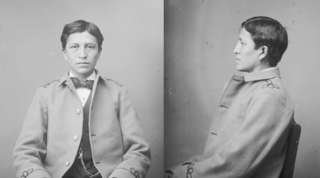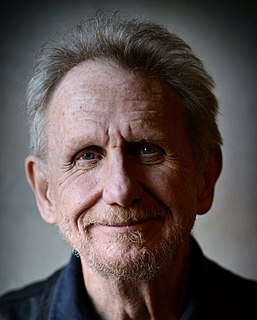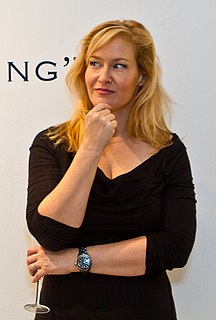A Quote by Cheryl Strayed
I grew up in northern Minnesota on 40 acres of wooded land 20 miles from the nearest town, and so the wilderness was home. It was not an unsafe place. I had that advantage. But there are so many representations of the wilderness being dangerous. You know, depictions of wild animals attacking people. It's like, "No, we kill those animals in far greater numbers than they kill us."
Related Quotes
Only to the white man was nature a "wilderness" and only to him was the land "infested" with "wild" animals and "savage" people. To us it was tame. Earth was bountiful and we were surrounded with the blessings of the Great Mystery. Not until the hairy man from the east came and with brutal frenzy heaped injustices upon us and the families that we loved was it "wild" for us. When the very animals of the forest began fleeing from his approach, then it was that for us the "Wild West" began.
what sets wilderness apart in the modern day is not that it's dangerous (it's almost certainly safer than any town or road) or that it's solitary (you can, so they say, be alone in a crowded room) or full of exotic animals (there are more at the zoo). it's that five miles out in the woods you can't buy anything.
The Promised Land, for many people, though, is something that's far off in the future. People are saved, but they don't feel victory. They feel like they're in a wilderness and they're wandering. And so this book of Joshua gives us a picture of how we can come out of the wilderness in our own spiritual lives and enter into a season of victory.
I didn't know Harlem existed. I didn't know there was such a place, because I grew up in white Queens, where five miles is 100 miles. So I went to the school and, being a smart cookie - as they called us in those days - I had a million questions. How did this place exist? How come I didn't know about it? Why are people living like this? Do they want to live like this?
In our culture of constant access and nonstop media, nothing feels more like a curse from God than time in the wilderness. To be obscure, to be off the beaten path, to be in the wilderness feels like abandonment. It seems more like exile than a vacation. To be so far off of everyone’s radar that the world might forget about us for a while? That’s almost akin to death…[But] far from being punishment, judgment, or a curse, the wilderness is a gift. It’s where we can experience the primal delight of being fully known and delighted in by God.
I am asserting that those who love the wilderness should not be wholly deprived of it, that while the reduction of the wilderness has been a good thing, its extermination would be a very bad one, and that the conservation of wilderness is the most urgent and difficult of all the tasks that confront us, because there are no economic laws to help and many to hinder its accomplishment.
. . . it is difficult for Europeans to appreciate the sentiment. Other nations kill animals by wholesale and kill one another; they exist in a sea of blood. A European said that the reason why in India animals were not killed was because it was supposed that they contained the spirits of ancestors. This reason was worthy of a savage nation who are not many steps from the brute.
Something will have gone out of us as a people if we ever let the remaining wilderness be destroyed We need wilderness preserved — as much of it as is still left, and as many kinds — because it was the challenge against which our character as a people was formed We simply need that wild country available to us, even if we never do more than drive to its edge and look in. For it can be a means of reassuring ourselves of our sanity as creatures, a part of the geography of hope.






































